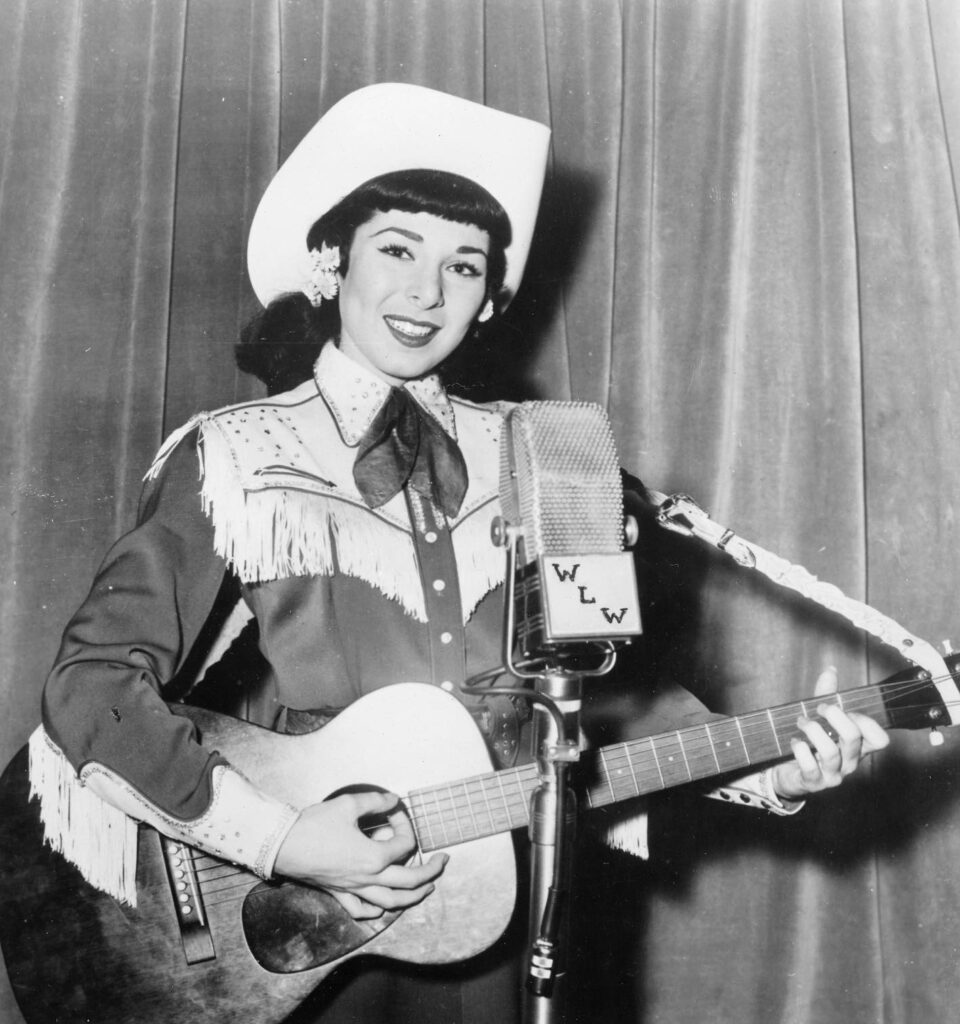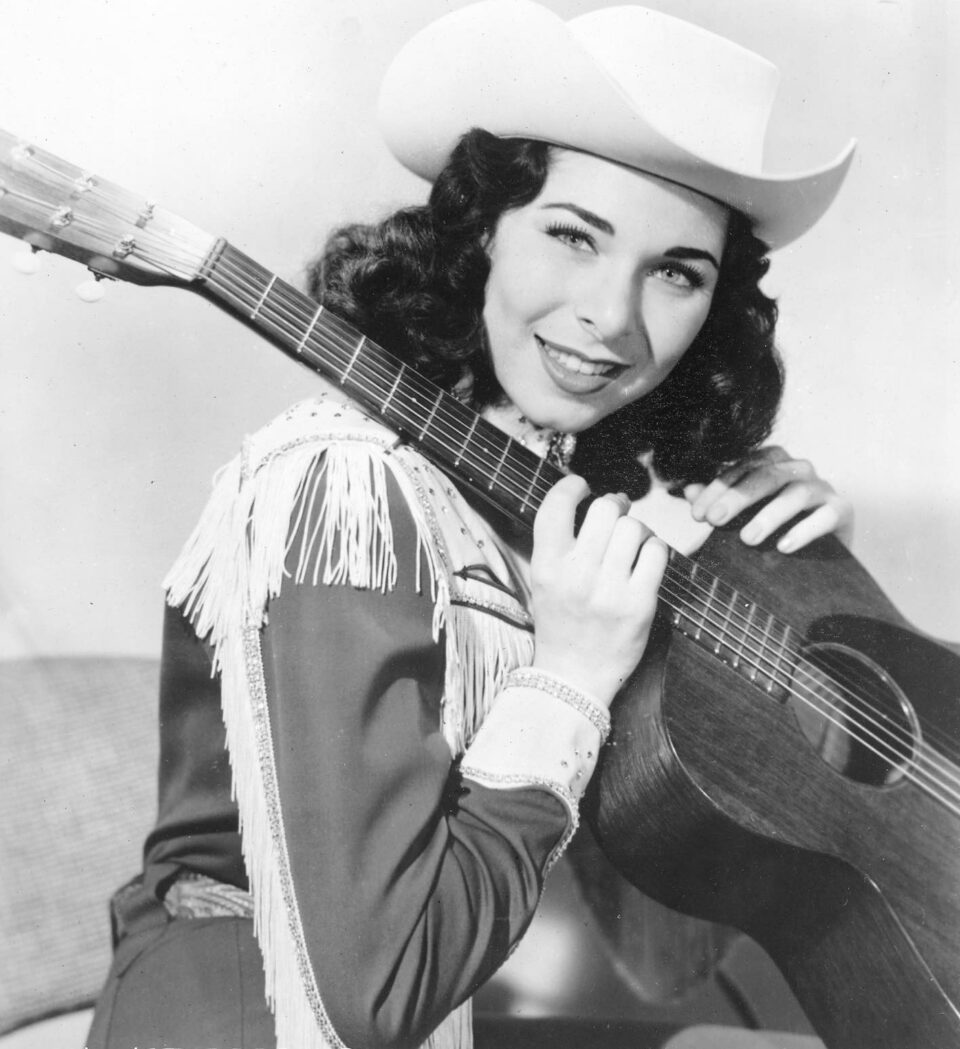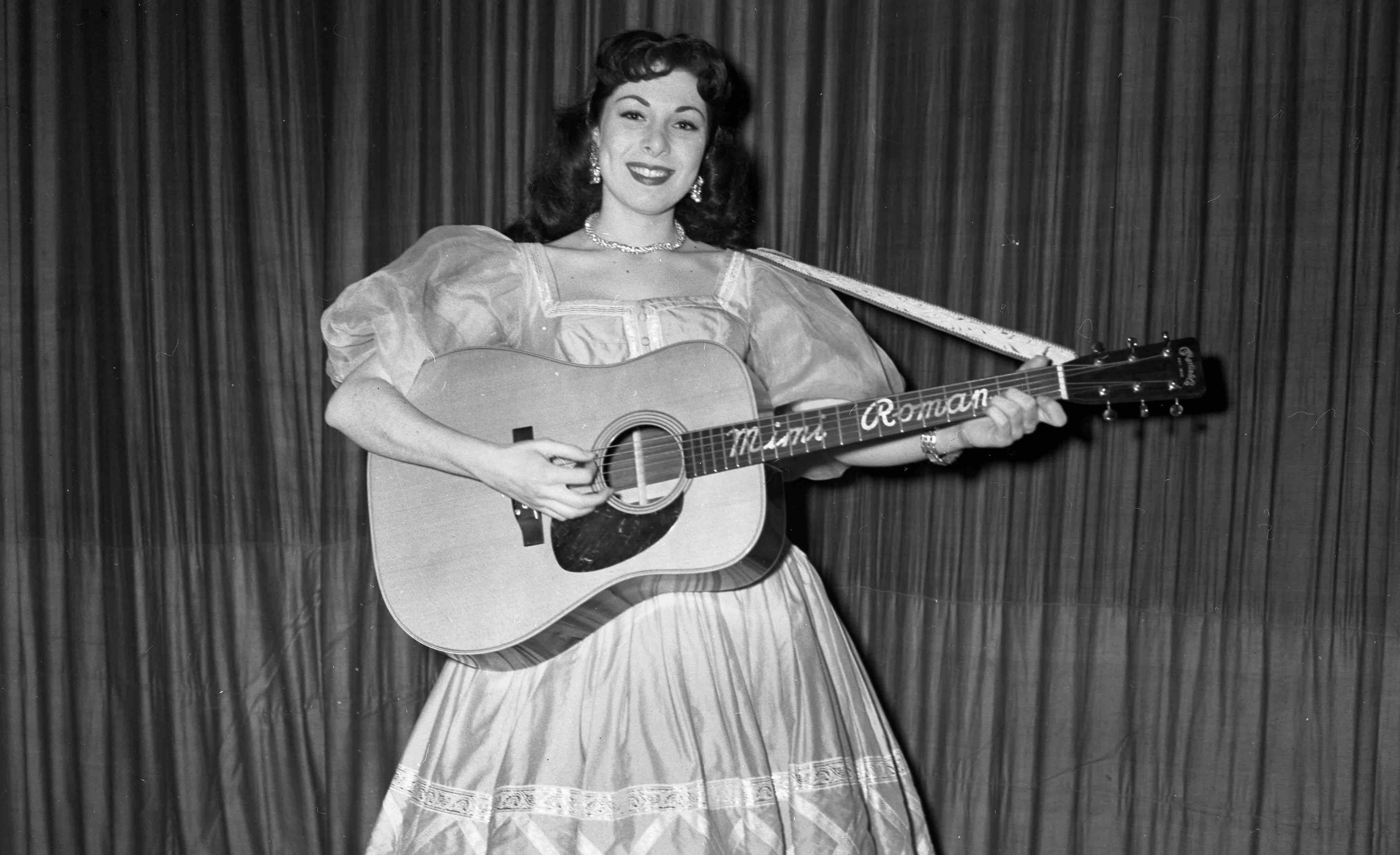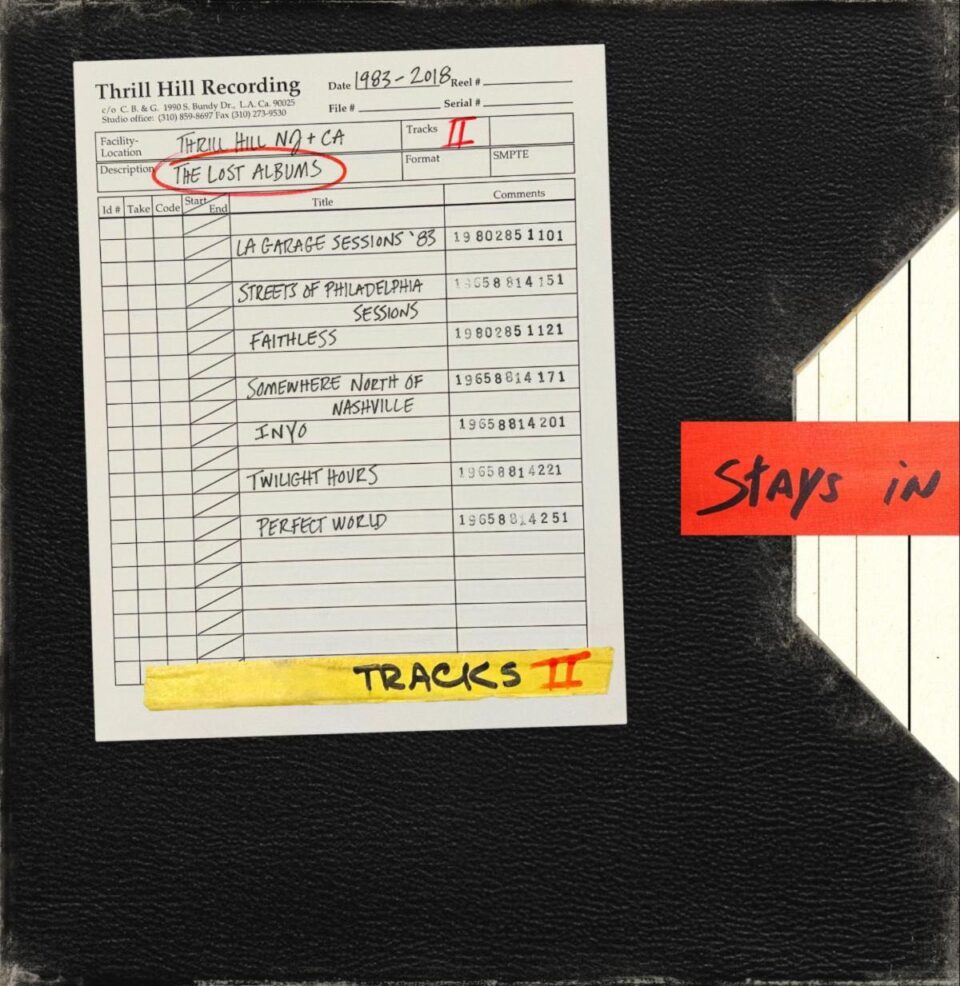To hear the green-eyed, Nashville-via-NYC singer tell it, the story of how Mimi Roman became a rockabilly queen and a country-pop crooner in the mid-’50s was as much of a happy accident as missing out on singing “Walkin’ After Midnight” was a blunder on behalf of her producer. “My whole career has been a series of fortuitous circumstances,” Roman tells me. “All the happenstances of my life made that career for me.”
Roman’s life has been a wealth of aesthetic and professional ups, with huge break after huge break—signing with Decca and working with legendary country producer Owen Bradley, singing for “Tennessee Waltz” songwriter Pee Wee King, hosting her own radio show, performing commercial jingles—most of which is documented on two newly released Sundazed label compilations, First of the Brooklyn Cowgirls and that of her alter ego Kitty Ford’s poppier side with Pussycat. “The Kitty Ford record? That was an ego thing with me, the songs that I really wanted to do that no one would let me do. And the double Mimi Roman album...I’m thrilled that a label such as Sundazed wanted to release it. My daughter and granddaughter, too, are thrilled that these albums are out. This was their mom and grandmom’s career.”
Though rooted in country music from the start, Roman didn’t exactly come from country stock. When I ask her about the Salinas, California reference in her bio, she states that it was a fictional former home she assigned to herself when her first bosses at the Decca label were uncomfortable with having a country singer from New York City’s boroughs. “They asked me to pick another place to be from,” recalls Roman. “I even thought that when I first played Salinas, they’d have some sort of homecoming parade. They had nothing for me, however. Nothing at all.”
Raised in New York, developing a love of country music was only possible via the radio on Friday and Saturday nights when Wheeling, West Virginia’s WWVA would come in through the static of the airwaves. “I’d be under my covers, late at night in bed, and the Barn Dance show would come on,” says Roman. “There was a 100,000 watt station out of Del Rio, Texas that would play country music and I could get that on my radio dial in Brooklyn. It wasn’t easy, but I was desperate—this was the music I wanted to hear, and I’d stay up all night waiting for it. Then I would stagger around the entirety of the next morning because I hadn’t gotten any sleep.”
“My whole career has been a series of fortuitous circumstances. All the happenstances of my life made that career for me.”
Before recording the slew of songs that make up Brooklyn Cowgirls in the present day, Roman was crowned queen of the Madison Square Garden Rodeo with a horse riding act that thrilled the crowd. There, she received a month-long contract to perform with that year’s star of the rodeo: Gene Autry and his assortment of horses. “That was an ambition of mine as a teenager, as I was a big rodeo fan,” she says. “In New York, the rodeo didn’t come often, but when it did it came for a whole month. You had to get sponsored by one of the local dude ranches—which itself was a rarity—and I tried out for two years running, but I finally won. I had changed my name right before that. I was ‘Rothman’ the first two tries.” (As she says in her documentary, Brooklyn Cowgirl, she shortened her name due to an antisemitic judging staff. “One of the judges asked me, ‘You a Jew?,’ and I said yes, and removed my hat, and said, ‘Look, no horns.’”)

That calling wound up producing fruit when Roman picked up a guitar, set her sights on becoming a nightclub cabaret singer, and—only by chance—found herself on the Arthur Godfrey Talent Scout show in 1954 when a neighbor of the family sent Roman’s name in to the network. “And, by golly, I won by singing a country song,” she says. “A door opened and I walked through it.”
For the uninitiated, the televised Godfrey’s Talent Scout was the American Idol of its day, a competitive singing program where stars were made overnight, with Godfrey as something of a multi-media presence. “You had to have a talent finder bring you in, and mine was my mom who discovered me at a very early age,” says Roman, who performed along with two other acts on that March 1954 program. “At the end of each show, they had an applause meter. When I won the Talent Scout program, that entitled me to be on the Arthur Godfrey morning show for a whole week. We had very strict instructions, too—you couldn’t talk to him or look at him. You couldn’t leave the stage until he left the stage. His nice-guy persona was not who he was in reality. He was a really scary man.”
“There was a 100,000 watt station out of Del Rio, Texas that would play country music and I could get that on my radio dial in Brooklyn. It wasn’t easy, but I was desperate—this was the music I wanted to hear, and I’d stay up all night waiting for it.”
Fate also put Roman before Owen Bradley, the preeminent country music producer of his time and an architect of the 1950s and ’60s Nashville sound with discoveries ranging from Patsy Cline and Loretta Lynn to Conway Twitty with stops at rock and roll (Buddy Holly) and rockabilly (Gene Vincent). “Owen was a wonderful guy, as was his brother Harold who played guitar on all of the records that I made with Mr. Bradley,” says Roman of those early Decca sessions.
“But my best recollection of Owen isn’t of my records. He calls me into the studio [one day] and tells me he wants me to hear something. He then goes on to play me this very early Patsy Cline session he had just recorded. Listening to that session was an ‘oh my goodness’ moment. Then he said to me, ‘I’ve got a country singer who wants to sing pop and a pop singer who wants to sing country. I don’t know what to do with you girls.’ Owen had a lot on his mind with us, especially as he had to figure out who he was going to get to sing ‘Walkin’ After Midnight.’ Patsy got it, and I was really happy for her because she was a terrific gal.”
While “Walkin’ After Midnight” became Cline’s first major hit on both the country and pop charts, Roman—possessed of an operatic range—is pleased to say that she went her own country way, recording songs such as Hank Williams’ “Weary Blues From Waiting,” “Mr. Opportunity,” and “Cheater’s Luck.” Roman didn’t pick the music, but she sings each melody and rides each rhythm as if the song has been part of her bloodstream since birth, noting too how she had “fantastic musicians” such as guitar legend Chet Atkins as part of her studio recording team. “I’d get ’em on a Friday and record ’em on a Saturday,” jokes Roman of the recording studio’s rush. “Sometimes I wish I’d had more time to work them out, maybe sing them in front of an audience first and see if they throw anything at me, but that’s how it was done.”
“It was just Wanda [Jackson] and I who were doing it. We didn’t even know what to call it, as ‘rockabilly’ didn’t have that name at the time. It was just us doing hard-driving, up-tempo songs. I was only ever a country singer—fast and slow.”
While some artists would never touch both country and rockabilly, like Wanda Jackson, Roman tackled both ends of the spectrum with nobility, tenderness, and sass. “It’s a wonder to me that it happened at the time, but it was just Wanda and I who were doing it. We didn’t even know what to call it, as ‘rockabilly’ didn’t have that name at the time. It was just us doing hard-driving, up-tempo songs. I was only ever a country singer—fast and slow.”
With touring a large part of her country music diet, Roman ran with the likes of Johnny Cash, Minnie Pearl, and Ernest Tubb and became part of Pee Wee King’s lively country swing ensemble, the Golden West Cowboys. “Elvis, too,” says Roman, who played shows with a young Presley. “I knew him from very early on, and he was a nice kid. I had a great opportunity there, as I was still living in New York City, at home with my mother even as I was pursuing country music. When Elvis or Johnny or Minnie would stop in New York, I was often the only person they knew, so we’d hang out, grab a hamburger, see a movie, go to the park, or just sit around, play the guitar and sing.”

By the top of the 1960s, Roman got out of the extensive touring side of the music business and remained in New York performing as a staff singer at Associated Recording Studios under her alter ego, Kitty Ford, where she provided vocals for songwriting demos for the Brill Building likes of Neil Sedaka and Carole King, Burt Bacharach, and Kander and Ebb, as well as Broadway musicals such as Chicago, Funny Girl, and Bye Bye Birdie.
“I always had the best luck of being signed to labels even though they often didn’t know what to do with me,” she laughs. “Meanwhile, to make a living, I had this job singing demos for songwriters, most of which was pop. The people I sang for wanted to release this stuff, but I was signed elsewhere. To get around that, however, they said pick a name. This time I came up with Kitty Ford—a baby car—and we went with that.”
Today, at 87, Mimi resides in Westport, Connecticut, selling real estate. With her three Martin guitars, her ukulele and boots, she's eager to promote her forthcoming reissues. “I have my guitar right here, and I’m ready whenever you need me.” FL









